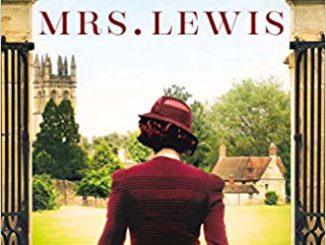Hey, everybody! Welcome to Tumnus’s Book Shelf, where we review any and all books related to CS Lewis and the Chronicles of Narnia. Today, we will be looking at CS Lewis’s Of Other Worlds.
Title: Of Other Worlds: Essays and Stories
Author :CS Lewis
Publisher: Harvest Books (October 28, 2002)
ISBN-10: 0156027674
ISBN-13: 978-0156027670
Summary
Collecting nine essays and some short pieces of fiction. Of Other Worlds examines the art of not only writing, but writing for children, and the nature of sci-fi, fantasy and the imagination, from one of it’s foremost authors: CS Lewis.
Review:
A year ago, my old college professor was going over some of manuscripts of a novel I am working on. One question he asked me was, “ Now what book, or books on the subject of writing would you rank as an essential to you on writing.”
At the time I only listed books I was told to read for my college English courses and I think he could very well sense that as I did not give a concrete answer. Now, if he were to ask me again I would be able to list Of Other Worlds by CS Lewis with great confidence as one of them.
It is easy to forget with his immense body of work dealing with apologetics, that Lewis wrote many more essays on other subjects. Some he wrote on education, others he wrote on something he enjoyed doing : writing. Of Other Worlds collects some of those forms of essays he wrote, and along with some of his short works of fiction provides us with a deeper look into his imagination
Those looking for a theological point to this book will not find one .That is not the aim here. He is not trying to win souls over to Christ. He is not trying to defend the faith. He is simply truing to address the subject of stories, and writing. In a way Lewis provides for aspiring writers some helpful advice on the craft.
That is not to say we do not get some helpful insights from him. We do, but it is more into his imaginary worlds and on the craft of writing. In his essay on “Writing for Children”, Lewis advises that we avoid “forcing” a message into a work and let it flow naturally. He advises instead of starting with a moral and working a story around it, we start with a story and let the moral come in naturally, other wise we only give the readers a platitude or a falsehood. We also learn in writing for children that to make a really good children’s story you simply put into it things you liked as a child and not to be concerned with what a “modern child may want or need”.
Readers curious about the Chronicles of Narnia will also discover some surprising facts from Lewis himself. Namely that Lewis did not start out with a Bible verse in mind ( say John 3:16, and Romans 3:23 for example) or a Bible story, or a doctrinal truth, and worked the world of Narnia around it. He rather started with a picture in his head, not of Aslan, but, perhaps most shockingly, Tumnus the faun, followed by the White Witch in a sledge, and then the Lion. The ‘Allegorical’ aspects came later upon revision and as he moved further along in the work in general.
There are also essays on Literary Criticism ( a field Lewis was leery of in his time, especially Freudian analysis), Science Fiction, and even a reply to a critic.
As a bonus to the essays, four short works of Science fiction are also in this volume. The first three are the short stories, “ The Shoddy lands”, “ Ministering Angels” and “The Shape of Things To Come”. These three stories are very well written. “The Shoddy Lands” almost feels like an episode of the Twilight Zone or The Outer Limits in terms of it’s mind bending aspects, and Ministering Angels and the “Shape of Things To Come” come are on par with any short works by the other fathers of the Sci-Fi genre like Asimov, Clarke, and Bradbury.
The last work of fiction, “After Ten Years” is an uncompleted manuscript for a novel Lewis was working on close to the time of his death. It tells the story of Menelaus from The Iliad reclaiming Helen of Troy and their journey back to Sparta. The story we encounter is very promising but is sadly cut much to short, leaving the readers craving more. It is a shame too, as it could easily have been even better than Till We Have Faces, which Lewis considered his greatest work of fiction.
Two of the essays also remain unfinished, leaving much to be desired in terms of the conclusions .Just when Lewis is picking up steam, the essay is cut short and you are left desiring more. However two unfinished essays and one novel fragment to not deter from the over all quality of the collection itself very much.
This book is highly recommended for aspiring authors, just as much for fans of Lewis. For those fans of Lewis you are certain to really enjoy the stories and gain some good insights into Lewis as a person and a writer, though they may not help win a theological debate. However, for the aspiring writer, you will find for yourself an indispensable book to help you learn how to be a better writer.
4 out of 5 shields.



I love this collection. The essays have also been a great inspiration to me as well. I orginally read the shorter fiction pieces in The Dark Tower and other Stories and I must say I think